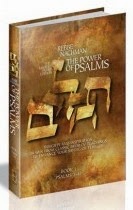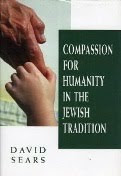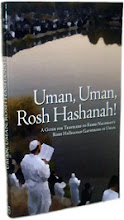By Rabbi Perets Auerbach
Throughout the Zohar, there is almost no topic mentioned as much as chatzot—midnight. Rabbi Nachman of Breslov taught: “One’s main service is to arise at midnight and stay up until the morning” (Sichot HaRan 301). The Baal Shem Tov said that one hour of the midnight service is worth many hours of divine service during the day.
Each of the twenty-four hours of the day has its own heavenly tribunal that sits and issues judgments for that hour (see Likutey Moharan I, 215). There are specific ways to sweeten any given din (judgment) that may prevail for that hour. Arising at midnight is a way of making a ‘pidyon’–a redeeming force (ibid. 149). It is the master key/grand sweetener/three lemons that hit the jackpot, which wins the lottery and ameliorates all dinim across the board (see “PS: Dividing the Night,” below). It is the “sweetest hour” that gives you a hold on the whole day. The Tikuney Zohar (Introduction, 2a) states that when one recites Tikkun Chatzot, the Midnight Rectification, “a supernal string of chesed is drawn for the entire day.” The early mystic catches the light!
There is a poem customarily recited after the Pesach Haggadah which lists many salvations that occurred at midnight. The first one is the redemption from Egypt by the tenth plague, corresponding to the sefirah of Keter/Crown. As the Haggadah states: “At around midnight (ka-chatzot), I will go into Egypt...” (Exodus 11:4). It is the special, unique, most precious moment when “ ‘I’ and not a seraf (fiery angel) [Divinity clothed in the World of Beriyah/Creation], ‘I’ and not an angel [Divinity clothed in the World of Yetzirah/Formation], ‘I’ and not a messenger [Divinity clothed in the World of Asiyah/Action]—but the Holy One blessed be He, in His glory [from the World of Atzilut/Emanation, the World of Unity]” shines forth. This is the intrinsic Divine essence.
Therefore, Dovid HaMelekh (King David) was careful to never ever sleep at this most esteemed moment (Berakhot 3b). He would get up and cleave to the Shekhinah (Zohar Chadash, Ki Tavo). This is one of the most praiseworthy things a person can possibly do—to be careful never to be caught asleep at midnight...
The Gemara states: “All of the prophets prophesized with “Ko (Thus) says God...”—as through an unclear looking glass. However, Moshe went a step farther; he prophesied from the level of “Zeh (This) is the word that God commanded...” (Numbers 30:2), as through a clear looking glass” (Sukkah 45b). The “unclear looking glass” is at best like seeing an image in the mirror; the image is not the thing itself. The “clear looking glass” is the lucid perception of seeing it directly.
However, there are things that can be seen by looking at a mirror that you can’t see when looking straightforward, such as what lies behind. Moshe certainly possessed the special advantages of this level— in their higher aspect of being above the clear looking glass. That is, he was able to use the aspect of the unclear looking glass to perceive levels of Divinity that are too high to be seen directly (Likutey Torah of the Baal HaTanya, Netzavim, 47c). For example, when God allowed Moshe to gaze at His back (Exodus 33:23).
“Graveyard Shift”
“The one who sits in the gardens, the friends who listen to your voice. Let me [also] hear [you]!” (Song of Songs 8:13). At midnight, God goes to the Garden of Eden to hang out, play, and frolic with the souls of the tzaddikim. They together gather and listen to the voice of one who is up singing, praying, and learning at that time (Zohar I, 77b, 92b; Zohar Chadash, Balak 65b).
Rabbi Velvel Cheshin once told a story about a certain kabbalist who used to learn with his students at midnight. They once noticed that outside the window, hosts and throngs of people were gathered around, as if listening to a concert. He explained to them that every night the souls of the tzaddikim come to listen to their learning. But this one time they merited to see this. For Chatzot is a portal to the next world.
“Midnight Music”
Chatzot is the special time of Dovid HaMelekh. He, more than anyone else, grasps its secret, uses it, and brings us its light. The Sages say that he had a special five-stringed harp. It begin to play when the north blew upon it exactly at midnight (serving as the first alarm clock) (Berakhot 3b). Dovid HaMelekh would arise and sing to God songs, praises, and psalms in midnight melodies.
One can link to the transcendental, elevate, and liberate themselves from materialism by means of midnight-meditation (Likutey Moharan I, 54:6).
Previously we saw that chatzot is the optimal time for hitbodedut. The point here is that one needs to have hitbodedut to get up, get out of bed, and merit to use it for this purpose. Convert all of these ideas mentioned above into a personal tefillah, asking to merit to arise every night and utilize the ethereal gift of the choicest time of the day.
Electricity has turned the tables around and destroyed the proper way of doing things. During the first part of the night the negative forces reign (Zohar II, 112b, 131a). It is not a time to try and actively draw kedushah (holiness). The best thing to do then is sleep. Instead, most of the world has become used to staying up the first part of the night, going to sleep just at the best time of day! People are raised into this habit from youth. One who wants to do things the right way is stuck, finding it difficult to change the order that his system is used to.
Rabbi Nachman reminds us again and again that tefillah is above nature and can accomplish miracles (e.g., Likutey Moharan 7:1). This includes helping us to change the cycles, order, and balance that the body is used to. In order to align with the order of the “supernal metabolism,” one might need to change the order of the physical counterpart. Tefillah can come to save the day and make this also happen.
PS: Dividing the Night
Shabbat afternoon is actually the highest time that does this (Zohar III, Idra Zuta). However, every night at midnight also has this potential. “Chatzot” means to split. It divides the night, which is din/judgment, and reveals the inner chesed that lies at the heart of the din.
This is the secret of “yachatz,” the splitting of the middle matzah at the beginning of the Pesach seder. The three matzot have the energy of the three mental faculties Chokhmah/Binah/Da’at clothed in them (Sha’ar HaKavannot, Pesach). Da’at splits into two: Chesed/Gevurah, the right/left aspects of the mind. Through this, it is able to spread out into the heart, and from there into the body.
“And you shall know this day and put into your heart...” (Deuteronomy 4:39). As long as Da’at is not drawn down, the person is in a relative state of darkness. Splitting Da’at, which allows it to promulgate, breaks the darkness. In the self, this means to simply integrate, live, and bring to experience and fulfillment what one knows.
In this concept lies the secret light of Chatzot. Getting up at midnight itself intrinsically negates the dark/night/obstacles (Likutey Moharan I, 115, based on Genesis 22:16) between mind and heart. Using the time for serving Hashem furthers the tikkun. The special midnight tefillot of Tikkun Chatzot are a crying over the destruction of the Temple—which itself is really the separation between mind and heart.
Subscribe to:
Post Comments (Atom)















No comments:
Post a Comment